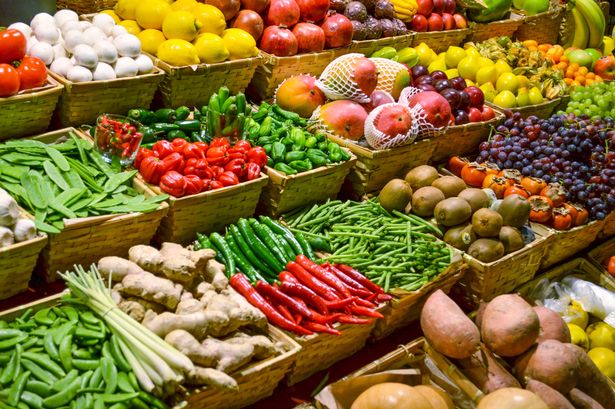The concept of dietary diversity, encompassing the consumption of a wide variety of foods from different plant groups, has emerged as a cornerstone of nutritional well-being. While traditional dietary guidelines often focus on specific nutrient intakes, the expanding field of gut microbiome research highlights the importance of nourishing the complex ecosystem within our digestive tracts. A growing body of evidence suggests that a diverse intake of plant-based foods directly influences the diversity and composition of our gut microbiota, which in turn plays a pivotal role in overall health, extending from digestion and immunity to mental well-being and disease prevention. The recommendation of consuming 30 different plants per week, while seemingly ambitious, reflects this paradigm shift towards prioritizing gut health by maximizing the range of prebiotic fibers and phytonutrients fueling a thriving microbial community. This approach goes beyond simply counting fruits and vegetables, encompassing whole grains, legumes, nuts, seeds, herbs, and spices, each contributing unique beneficial compounds to the gut ecosystem.
The rationale behind the “30 plants per week” guideline lies in the principle that different plant species harbor distinct types of fiber and polyphenols. Fiber, largely indigestible by human enzymes, serves as fuel for beneficial gut bacteria. These bacteria ferment the fiber, producing short-chain fatty acids (SCFAs) like butyrate, acetate, and propionate. SCFAs have profound impacts on human health, including regulating gut motility, strengthening the intestinal barrier, reducing inflammation, and even influencing brain function. Polyphenols, another class of plant-derived compounds, act as antioxidants, protecting cells from damage and also contributing to the diversity and health of the gut microbiota. Consuming a diverse range of plants ensures exposure to a wider spectrum of these beneficial fibers and polyphenols, thereby supporting a more resilient and versatile gut microbiome.
A diet limited to a small number of plant species, even if those choices are considered “healthy,” restricts the diversity of the gut microbiota. This can lead to an imbalance in the microbial community, known as dysbiosis, potentially resulting in digestive issues like bloating, gas, and constipation, as well as increasing the risk of chronic diseases. Limited microbial diversity has been linked to inflammatory bowel disease (IBD), type 2 diabetes, obesity, and even certain types of cancer. By contrast, a diverse gut microbiome, nurtured by a wide range of plant-based foods, contributes to a stronger immune system, improved nutrient absorption, and enhanced metabolic function. It acts as a protective barrier against pathogens and helps maintain overall homeostasis within the body.
The challenge of consuming 30 different plants per week might appear daunting, but with strategic planning and a shift in perspective, it becomes an achievable and rewarding goal. It’s important to remember that this recommendation isn’t about rigidly adhering to a specific number, but rather about embracing the principle of maximizing plant diversity. Simple additions like incorporating different types of beans into meals, adding a variety of seeds to salads, experimenting with new herbs and spices, and choosing whole grains over refined options can significantly contribute to reaching the 30-plant target. Thinking beyond traditional fruits and vegetables, embracing the diversity within each food group, and considering herbs, spices, and even different colored varieties of the same vegetable all contribute to a richer and more beneficial gut environment.
Practical strategies for increasing plant diversity can be seamlessly integrated into daily routines. Planning meals around a variety of colorful vegetables, incorporating legumes like lentils, chickpeas, and black beans into soups, stews, and salads, and adding a sprinkle of seeds like chia, flax, or pumpkin to breakfast cereals or smoothies are all simple yet effective strategies. Exploring different varieties of whole grains, such as quinoa, farro, or wild rice, adds both nutritional value and diversity to the diet. Furthermore, embracing herbs and spices not only enhances the flavor of meals but also introduces a wealth of beneficial phytonutrients. Even a simple swap from using dried herbs to fresh ones can contribute to increasing plant diversity.
Ultimately, the “30 plants per week” guideline serves as a powerful reminder of the crucial link between dietary diversity and overall health. It underscores the importance of nourishing not just ourselves, but also the trillions of microorganisms residing within our gut. Embracing this principle empowers individuals to take control of their well-being by making conscious food choices that promote a thriving and diverse gut microbiome, laying the foundation for long-term health and vitality. By shifting the focus from specific nutrient targets to a broader emphasis on dietary variety, individuals can cultivate a resilient internal ecosystem, reaping the benefits of a more robust immune system, improved digestive function, and a reduced risk of chronic disease. The journey towards 30 plants per week is not just about counting numbers; it’s about cultivating a vibrant and diverse inner garden that supports optimal health and well-being.














